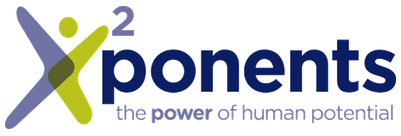Jan 13, 2015 2:09:52 PM
I recently read an article about creating a “stop doing” list for the New Year. I ALWAYS do some kind of goal setting, but this year I had struggled with getting started. I feel a bit like blowing it up, getting unstuck, redefining our business model, strategy, and well, pretty much everything!
Starting with what I was stopping felt refreshing. Before I made a list of what I wanted “more of” during 2015, I wrote a list of what I wanted “less of.” Unfortunately, what I discovered didn’t create the clarity I had hoped for. Here was my first list of what I wanted less of:
complaining
overthinking
doubting
frowning
blaming
overeating
worrying
wasting
I clearly wanted less of what made me unhappy. And yet I hadn’t specifically identified what was under those feelings. I needed something more that would help me take real action, and this wasn’t it. I examined my list, looking for themes and reflecting on what it all meant.
What caused me to worry? Not taking action. Not having a plan. Not having the plan work out the way I thought it would..What was the root cause of wasting time or resources? Not being deliberate, boredom, not having a thoughtful plan. Why did I get stalled by overthinking? One of my strengths is being strategic, and sometimes that has me playing a metaphorical game of chess as I try to sort out what will happen three moves ahead. Strategy is a powerful tool that helps me succeed but when overdone it becomes a weapon, turning my strength against me. Often, I realized, this tendency to overthink was born of self-doubt.
As I moved on to the times that I complained or blamed something outside myself on my situation, I felt disempowered and couldn’t own up to my part. I’d like to say this doesn’t happen too often, but I vowed to step more boldly toward personal accountability in the coming year.
Finally, what of overeating and frowning? Both I knew were linked to all of the above, or a symptom of my dissatisfaction, feelings of disempowerment, self-doubt, and lack of thoughtful and deliberate planning. But how could I become more enthusiastic, empowered, confident, and discerning about what to say no to in the New Year?
I already knew the tasks that made me bored, like unrelenting email, some aspects of social marketing and administrative tasks. These tasks were important to the business, and I knew they needed some evaluation to determine if we could streamline, delegate, or eliminate elements that were time-wasters. The question became: how can I define what parts must stay and what must go? I needed a decision tool, a way to determine what I will stop doing in the New Year.
Below is my own litmus test to decide what to let go of. To avoid being added to my “stop doing” list, the answer to all three questions must be yes.
• Is the activity connected to what creates revenue? Can it be measured?
• Does the time spent connect me to my key clients, prospects, or influencers?
• Will the activity connect me with what creates passion, joy, and purpose in my life?
The questions will need adjusting with time and use, but I feel a sense of relief and renewed excitement about finding a path to clean out what no longer supports me.
How about you? Is there anything you’d like less of in 2015? If you’d like some extra inspiration, below are 25 bad business habits to consider breaking this year:
1. Impulsive web browsing
2. Moral licensing
3. Putting off your most important work until later in the day
4. Saying “yes” to too much
5. Taking too many meetings
6. Multitasking
7. Being unprepared
8. Failing to prioritize
9. Over-planning
10. Under-planning
11. Being unorganized
12. Not protecting you data
13. Sleepless nights
14. Ignoring mobile marketing
15. Thinking short term
16. Failure to delegate
17. Bottlenecking decision-making
18. Being reactive instead of proactive
19. Engaging in unproductive activities
20. Fear
21. Putting all your energy into web marketing
22. Overlooking local influence
23. Marketing only when it’s convenient
24. Catering only to prospects
25. Blogging infrequently or not at all
If you like this blog, I think you will like my book The Cycle of Transformation. Available now!
Deb Siverson is a seasoned executive coach, certified as a PCC through the International Coach Federation. If you want to schedule time to discuss how you or your organization can increase engagement by having a different conversation at work, contact us now.






